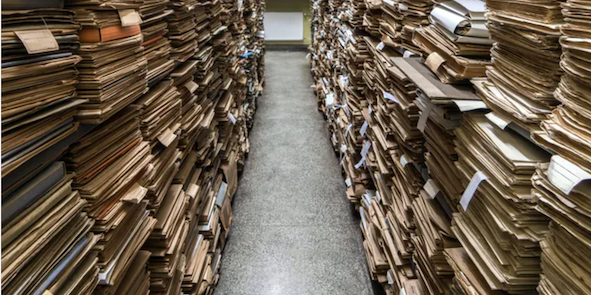Archive

Archives have been an integral part of human history, collecting and preserving records and artifacts that date back centuries. The importance of archives can be seen in various aspects of society, including safeguarding cultural heritage, providing invaluable resources for historical research, and ensuring accountability for governments and organizations. In this article, we will delve into the fascinating world of archives, from inception to modern-day digitization.
The Origins of Archives
The concept of archiving materials dates back to ancient civilizations such as Babylon, Mesopotamia, and Egypt. Some of the earliest known archives include the clay tablets found in the ruins of Ebla (now modern-day Syria) and Assyrian King Ashurbanipal’s Library at Nineveh. Archival practices were later refined by the Greeks and Romans, whose archival works still provide valuable insights into their respective societies.
Purpose and Importance
Archives serve several purposes for humanity. They document human achievements throughout history by preserving essential records that provide a glimpse into past civilizations – from the daily lives of ordinary people to the complex workings of governments and organizations. Archives are also crucial for educational purposes; they hold primary sources vital to historical research and exploration that can help us understand our own past better.
Another crucial function is safeguarding cultural heritage. Records, photographs, audio recordings, and artifacts stored in archives offer insight into various cultural practices, enabling us to envision different eras.
Modern Archiving Practices
Over time, archiving techniques and methods have evolved with advancements in technology. The introduction of computers has allowed for the digitization of paper documents, making them easily accessible worldwide through digital libraries.
In recent years, there has been a burgeoning interest among individuals to participate in archiving initiatives – chronicling family histories, local stories or photographing places before they are lost to time. It’s clear that preserving memories is no longer confined within professional institutions; it has now become something people value in their own lives.
Challenges and the Future
The shift towards digitization brings its own set of challenges. Physical artifacts can deteriorate over time due to environmental factors, while digital formats run the risk of obsolescence or lack of maintenance. Archivists must stay vigilant when making decisions regarding preservation methods to ensure future generations can access and appreciate our historical heritage.
Looking forward, it is vital for communities and governments worldwide to understand the importance of archiving and support it accordingly. With the rapid development of technology and increasing global cultural exchange, archives have never been more important in helping us understand human civilization’s complexity and richness.
Conclusion
Archives are living testimonies to our past, offering invaluable insights into the events and cultures that shaped humanity. As we move forward in this digital age, ensuring the proper preservation and accessibility of archived materials becomes a greater responsibility for both professionals and the public. By nurturing our understanding of archives, we can work together to protect our history and ensure its legacy endures for generations to come.






